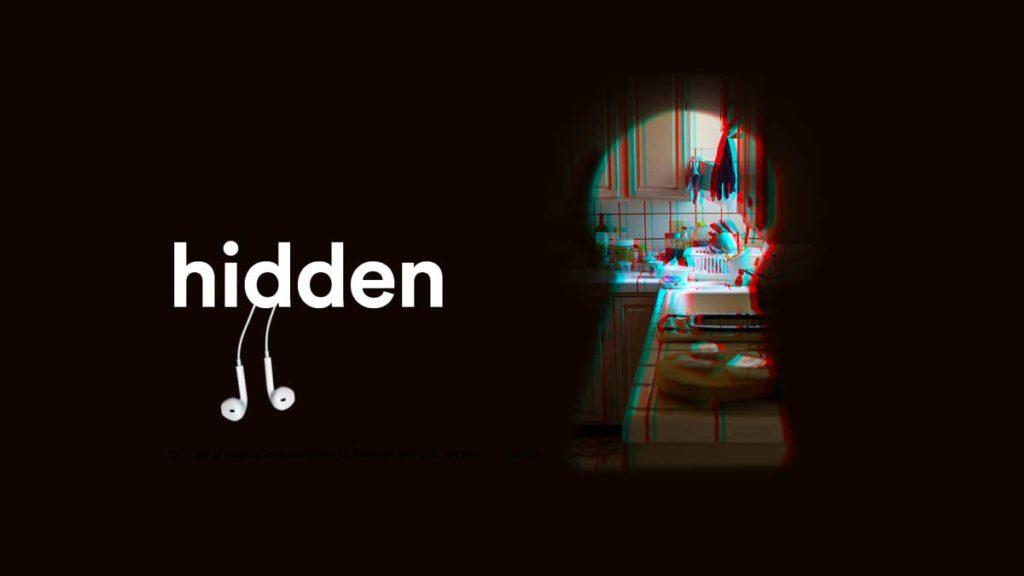
Me: Is Richard’s story unusual do you think?
Nicola (laughs): I think we are all a lot like Richard at the moment.
Yesterday we launched our ‘Hidden’ programme. ‘Hidden’ is a series of interactive audio experiences that challenge listeners to walk in someone else’s shoes using their own homes and lives as a theatrical backdrop. ‘Hidden’ is also series of online (forum theatre style) workshops for people with lived experience and commissioners and practitioners from the services that support them. These workshops give people an opportunity to respond to each episode and think about what would help the character. The discussions from the workshops are recorded and will be made available for people to listen to through our website.
Everyone I’ve talked to over the last few months has a different story, an original take, obstacle or heartache thrown into their path by the pandemic – the repeatedly cancelled wedding, the postponed move, the unfinished building work, the estranged family relationships, the Zoom funeral. Each time I hear a new story my understanding of the impact of this period grows and I am always disappointed in myself for not thinking of it before. Why am I not aware of that threat, why did I not already identify that was happening and might be happening to a lot of people, and in some case, might happen to me and my family – it now seems so obvious? We all live in our bubbles, both figuratively and now literally, and despite the 24 hour news and in many ways because of it, our understanding of what is happening to our fellow human beings, many of which in our immediate communities, is stagnant or shrinking.
The stories that are explored through our ‘Hidden’ programme are about people that were ‘just about managing’ before the pandemic struck. They had their social networks and their routines and with a bit of support they were doing ok. Now, as the long months tick on by, things begin to crumble for them and we (the listeners) meet them at a point of crisis. What is particularly concerning about each character’s situation is that they are in danger of falling through the net. They are not regularly engaging with services or agencies and they don’t want to – they don’t want that ‘service user’ label or they just don’t know what’s out there for them. The characters in ‘Hidden” were on the brink of becoming socially isolated way before it was popularised by the virus. Their confidence and self-esteem is low and they feel reluctant to ask for help. Their usual support networks are based in the community or with peripheral family members, a community and family that are now locked behind closed doors and struggling with their own problems. Each character is not quite ‘bad’ enough for many services (that they’re not asking, let alone fighting for) and not quite ‘well’ enough to cope all on their own right now. Who helps them and what does that help look like? What can you do?
The online workshops use each episode as inspiration to try and answer these questions. They give people with lived experience a platform to have their voices heard and give people working in health and social care an opportunity to consider their personal as well as professional approach to the character. What is interesting is, what the difference between those personal and professional approaches are and where the frictions lay when working within a system that may or more frequently, may not allow a personal approach. What is also striking, is that these types of challenges and barriers within the system existed long before the virus. How many people like Richard will fall through the net before real and comprehensive change begins to happen? How long will people like Richard have to rely on good people working within a broken system noticing them?
Me: What advice would you give someone trying to help Richard?
Nicola: You’ve got to start by listening to him, getting to know him, getting to love him just enough, and then, and only then, will you be able to help him.
In the workshops, time and time again people mention the need for something meaningful for the character to do, the importance of a purpose- “get a dog”, “go to a group”, “go for regular walks with old friends”, “make music”. Having a purpose is clearly a vital part of people overcoming the barriers that stand in their way and overcoming many of the challenges they face. Purpose helps you care about yourself and the world. Purpose helps change things.
‘Everyone needs somewhere to live, someone to love and something to do’- I don’t know where it’s from but I read it in a Zoom chat the other day and it really struck home with me.
